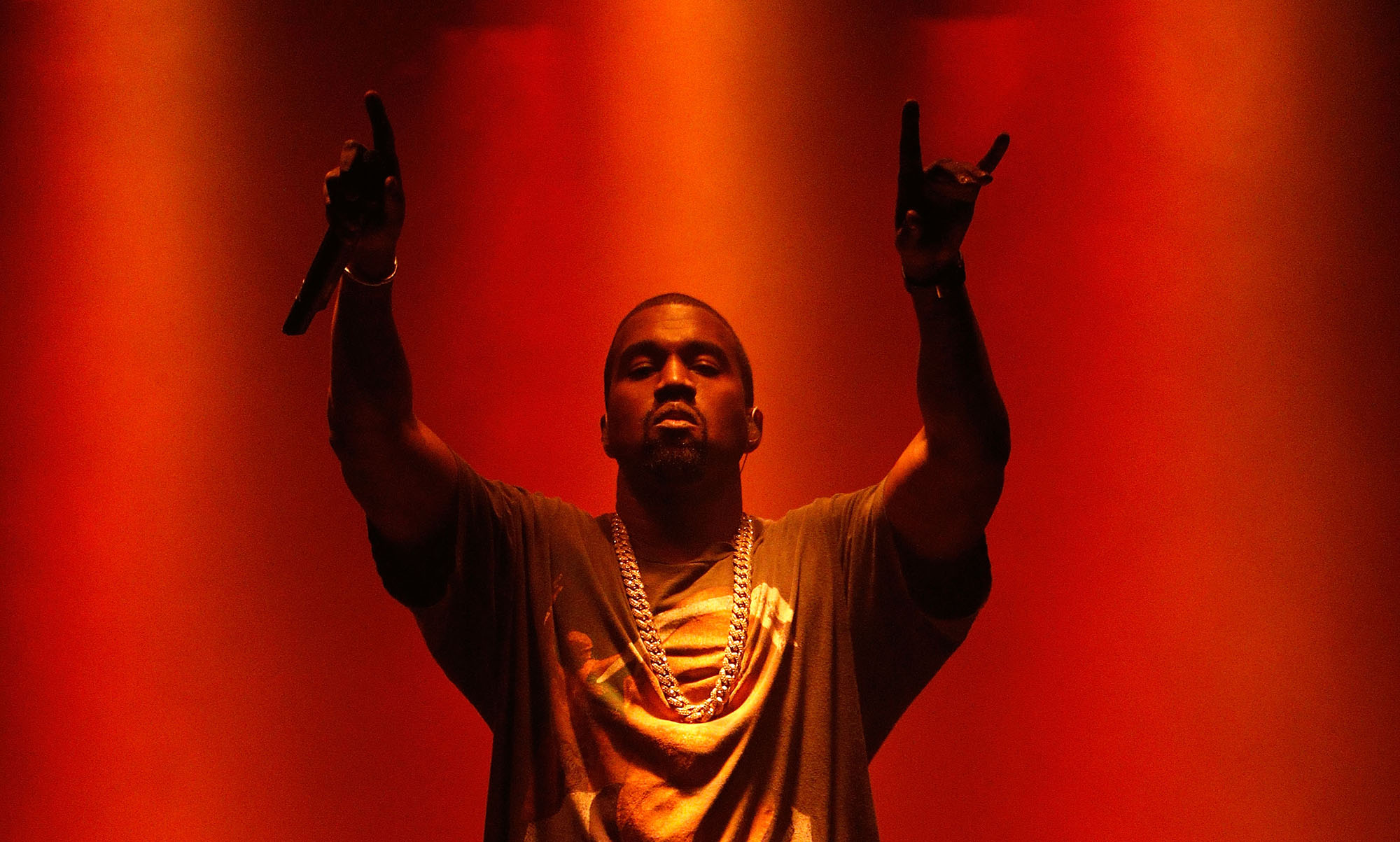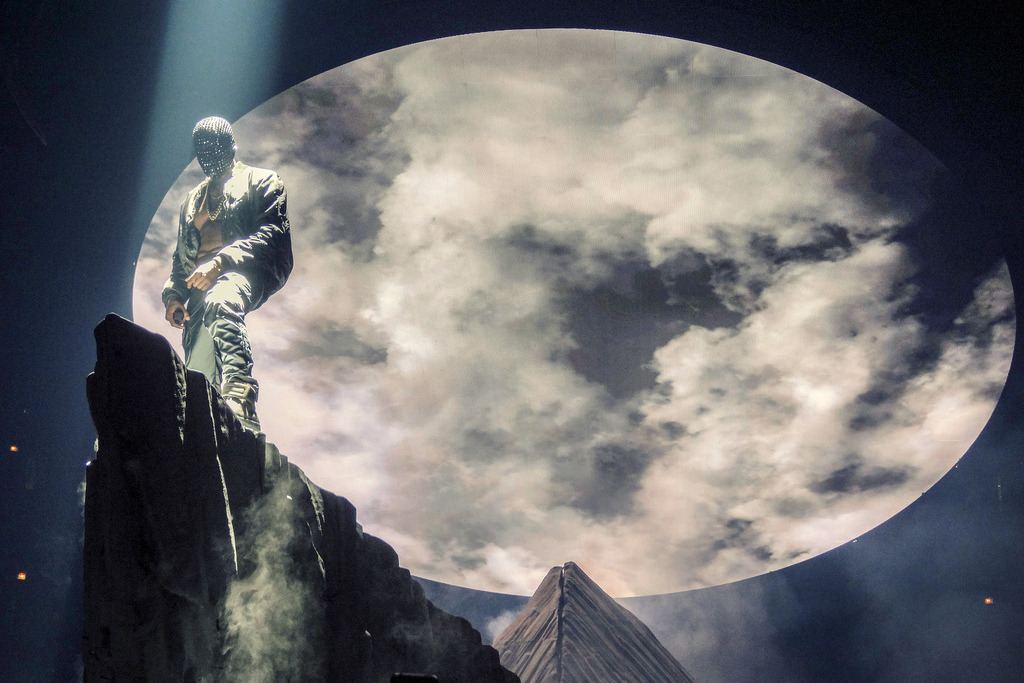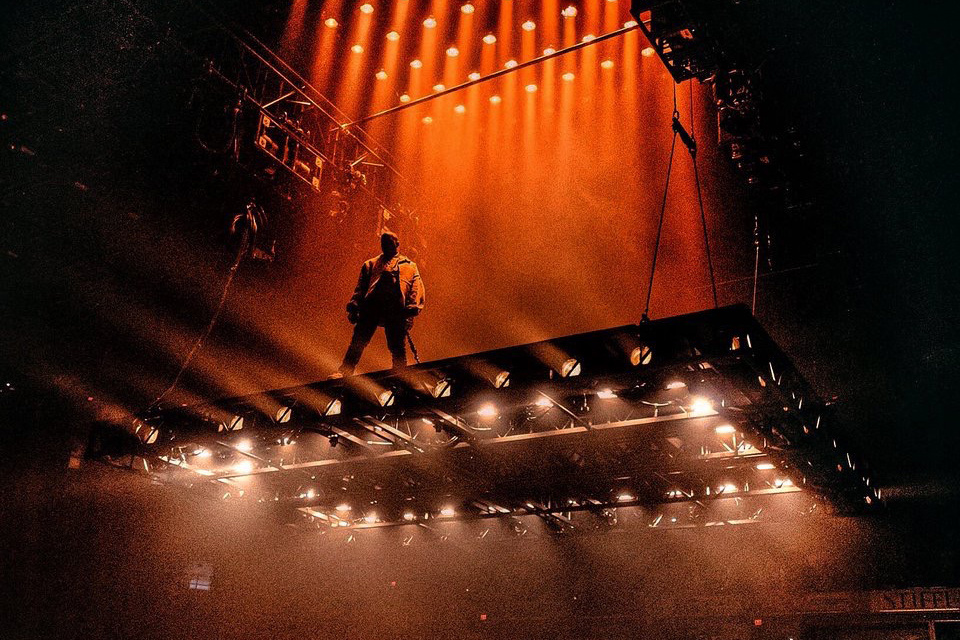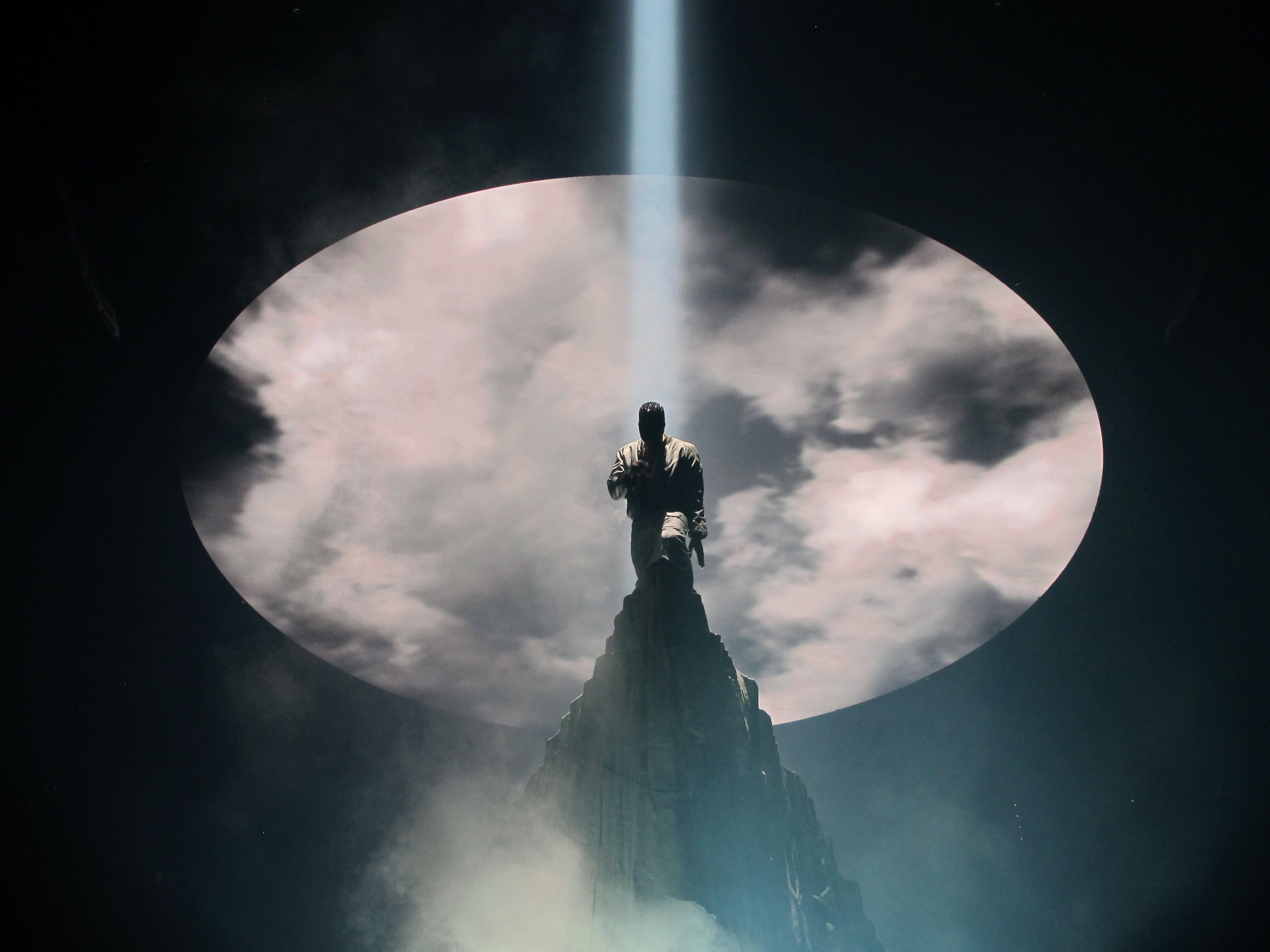
Kanye West: Yeezus
Photo credits: The Hollywood REPORTER
16th June 2020
“Yeezus”, I believe, is Kanye’s riskiest artistic statement to date, a completely experimental detour from his previous works. Kanye lost a lot of fans when “Yeezus” was first released. With near to no promotional material provided for the album, they were simply expecting a “My Beautiful Dark Twisted Fantasy” part 2, but an experimental curveball was thrown at them instead.
In “Yeezus”, Kanye develops his use of the vocoder from “808s & Heartbreaks” and “My Beautiful Dark Twisted Fantasy”, but the vocal distortions here are noticeably darker and denser, producing an ominous mood throughout the whole album. He covers an array of topics and gives a performance of braggadocious rebellion, narcistic godlike egotism, sexual debauchery, shallow materialism and social political conflict. The lyricism is often ridiculous, hilarious and down right off putting. In many ways, it contains his worst lyrical performances. But he's never really been known for his lyrical aptitude has he? Nevertheless, this seems to add the whole album’s fragmented soundscape.
It is difficult to describe the genre. Of course, it is hip hop, but also an unpredictable combination of industrial music, electronica, acid house with influences of punk rock. The music is messy, striped-back and minimal, but the bombastic variety of sounds creates a musical platform that transports the listener to some kind of cyber-industrial dystopia.

Photo credits: TimeOut
This cyber-industrial atmosphere is achieved by the repetitive laser-synths from “On Sight”, the aggressive punk rock deliveries from “Black Skinhead”, the heavy drums and drone-like sirens from “I’m In It” and the glitchy screams of terror from “I am a God”. But of course, it wouldn’t be a Kanye project if he didn’t reach for his soulful roots. For example, Charlie Wilson’s heart-wrenching R&B feature in “Bound 2”, the haunting gospel choir’s interpolation in “On Sight” and let's not forget the spectacular Nina sample from “Strange Fruit” in “Blood on the Leaves” combined with the repetitively grandiose horns.
At it's first release, it received much criticism from loyal hip-hop fans but also praise from critics with a more experimental edge. The reception was divided, and admitedly, I overlooked "Yeezus" too. However, 7 years after it's release, it's cultural significance in the world of hip-hop is evident, from Travis Scott's psychedelic trap music to JPEG Mafia's industrial raps. It's an album that I keep coming back to with more and more appreciation.

Photo credits: HYPEBEAST
On another note: I’ve never been to a Kanye West concert, but having seen various footage from the internet, I’m convinced that Kanye’s attention to detail and demand for artistic freedom is just outstanding. He evidently has a creative vision in mind, from the stage and costume design to the position of lighting and thematic set list. For example, the 50-foot mountain transitioning into a volcano with a gigantic circular LED screen suspended from the ceiling in his "Yeezus Tour". Or the floating stage accompanied by carefully positioned lighting surrounded by white mist in his “Saint Pablo Tour”.
Kanye has proven himself to be not only a genius hip-hop producer and rapper, but an artistic mastermind in all respects. Considering his whole discography, he has undoubtedly changed the artistic landscape of modern culture, and continues to push those boundaries and continues to influence generations of artists after him.

Photo credits: The Cavalier Daily
Writing about Kanye also gives me the opportunity to consider the controversy surrounding his private and public life. Kanye evidently has an erratic personality and has some kind of mental condition, but I don’t intend to justify any of his antics here. I simply want to voice my thoughts on the question of “separating the artist from the art” .
Isn’t it curious that we don’t reject the theories of scientists or mathematicians because their behaviour is contrary to public decency, but we do so with artists? Schrödinger was a terrible misogynist and perpetual adulterer. Einstein abandoned his illegitimate daughter. Marie Curie stole another woman’s husband, leaving the woman to raise 4 young children by herself. So let’s reject all of their contributions to science.
We clearly view art as having some kind of ethical standing, and that makes us sensitive to the artist’s personal morals. However, many of us are capable of separating the art from the artist. We separate Picasso’s use of women as “machines for suffering” from his paintings. Johnny Cash and James Brown abused women, Orwell was homophobic, Wagner was anti-Semitic… and the list goes on. Yet we still celebrate their artistic achievements. But that’s exactly it, we celebrate the art, not the artist.
An artist should be judged not by virtue of their character but the art that he or she produces. We will always find something about an artist contrary to our personal convictions, but should we suddenly reject them? There is room for discussion about how much of the aritst's personal life is embedded in their art, or whether the works of any of these artists or scientists above should be valued. But the fact remains that Kanye’s blunders are nothing compared to the other artists listed above. Any ad hominem attacks against the quality or value of Kanye's works are, at least to me, unreasonable and speaks more about the critic's lack of credibility when it comes to their artistic judgement.
Now let's relax and enjoy the music for what it is without getting involved in any personal vendettas.

Photo credits: Brooklyn Vegan